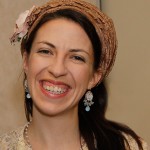My reading
Haftarah Parashat T’rumah
I Kings 5:26 - 6:13
5:26 וַיהוָ֗ה נָתַ֤ן חָכְמָה֙ לִשְׁלֹמֹ֔ה כַּאֲשֶׁ֖ר דִּבֶּר־ל֑וֹ וַיְהִ֣י שָׁלֹ֗ם בֵּ֤ין חִירָם֙ וּבֵ֣ין שְׁלֹמֹ֔ה וַיִּכְרְת֥וּ בְרִ֖ית שְׁנֵיהֶֽם׃
5:27 וַיַּ֨עַל הַמֶּ֧לֶךְ שְׁלֹמֹ֛ה מַ֖ס מִכָּל־יִשְׂרָאֵ֑ל וַיְהִ֣י הַמַּ֔ס שְׁלֹשִׁ֥ים אֶ֖לֶף אִֽישׁ׃
5:28 וַיִּשְׁלָחֵ֣ם לְבָנ֗וֹנָה עֲשֶׂ֨רֶת אֲלָפִ֤ים בַּחֹ֙דֶשׁ֙ חֲלִיפ֔וֹת חֹ֚דֶשׁ יִהְי֣וּ בַלְּבָנ֔וֹן שְׁנַ֥יִם חֳדָשִׁ֖ים בְּבֵית֑וֹ וַאֲדֹנִירָ֖ם עַל־הַמַּֽס׃
5:29 וַיְהִ֧י לִשְׁלֹמֹ֛ה שִׁבְעִ֥ים אֶ֖לֶף נֹשֵׂ֣א סַבָּ֑ל וּשְׁמֹנִ֥ים אֶ֖לֶף חֹצֵ֥ב בָּהָֽר׃
5:30 לְ֠בַד מִשָּׂרֵ֨י הַנִּצָּבִ֤ים לִשְׁלֹמֹה֙ אֲשֶׁ֣ר עַל־הַמְּלָאכָ֔ה שְׁלֹ֥שֶׁת אֲלָפִ֖ים וּשְׁלֹ֣שׁ מֵא֑וֹת הָרֹדִ֣ים בָּעָ֔ם הָעֹשִׂ֖ים בַּמְּלָאכָֽה׃
5:31 וַיְצַ֣ו הַמֶּ֡לֶךְ וַיַּסִּעוּ֩ אֲבָנִ֨ים גְּדֹל֜וֹת אֲבָנִ֧ים יְקָר֛וֹת לְיַסֵּ֥ד הַבָּ֖יִת אַבְנֵ֥י גָזִֽית׃
5:32 וַֽיִּפְסְל֞וּ בֹּנֵ֧י שְׁלֹמֹ֛ה וּבֹנֵ֥י חִיר֖וֹם וְהַגִּבְלִ֑ים וַיָּכִ֛ינוּ הָעֵצִ֥ים וְהָאֲבָנִ֖ים לִבְנ֥וֹת הַבָּֽיִת׃
6:1 וַיְהִ֣י בִשְׁמוֹנִ֣ים שָׁנָ֣ה וְאַרְבַּ֣ע מֵא֣וֹת שָׁנָ֡ה לְצֵ֣את בְּנֵֽי־יִשְׂרָאֵ֣ל מֵאֶֽרֶץ־מִצְרַיִם֩ בַּשָּׁנָ֨ה הָרְבִיעִ֜ית בְּחֹ֣דֶשׁ זִ֗ו ה֚וּא הַחֹ֣דֶשׁ הַשֵּׁנִ֔י לִמְלֹ֥ךְ שְׁלֹמֹ֖ה עַל־יִשְׂרָאֵ֑ל וַיִּ֥בֶן הַבַּ֖יִת לַיהוָֽה׃
6:2 וְהַבַּ֗יִת אֲשֶׁ֨ר בָּנָ֜ה הַמֶּ֤לֶךְ שְׁלֹמֹה֙ לַֽיהוָ֔ה שִׁשִּֽׁים־אַמָּ֥ה אָרְכּ֖וֹ וְעֶשְׂרִ֤ים רָחְבּ֑וֹ וּשְׁלֹשִׁ֥ים אַמָּ֖ה קוֹמָתֽוֹ׃
6:3 וְהָאוּלָ֗ם עַל־פְּנֵי֙ הֵיכַ֣ל הַבַּ֔יִת עֶשְׂרִ֣ים אַמָּה֙ אָרְכּ֔וֹ עַל־פְּנֵ֖י רֹ֣חַב הַבָּ֑יִת עֶ֧שֶׂר בָּאַמָּ֛ה רָחְבּ֖וֹ עַל־פְּנֵ֥י הַבָּֽיִת׃
6:4 וַיַּ֣עַשׂ לַבָּ֔יִת חַלּוֹנֵ֖י שְׁקֻפִ֥ים אֲטֻמִֽים׃
6:5 וַיִּבֶן֩ עַל־קִ֨יר הַבַּ֤יִת יצוע [יָצִ֙יעַ֙] סָבִ֔יב אֶת־קִיר֤וֹת הַבַּ֙יִת֙ סָבִ֔יב לַֽהֵיכָ֖ל וְלַדְּבִ֑יר וַיַּ֥עַשׂ צְלָע֖וֹת סָבִֽיב׃
6:6 היצוע [הַיָּצִ֨יעַ] הַתַּחְתֹּנָ֜ה חָמֵ֧שׁ בָּאַמָּ֣ה רָחְבָּ֗הּ וְהַתִּֽיכֹנָה֙ שֵׁ֤שׁ בָּֽאַמָּה֙ רָחְבָּ֔הּ וְהַ֨שְּׁלִישִׁ֔ית שֶׁ֥בַע בָּאַמָּ֖ה רָחְבָּ֑הּ כִּ֡י מִגְרָעוֹת֩ נָתַ֨ן לַבַּ֤יִת סָבִיב֙ ח֔וּצָה לְבִלְתִּ֖י אֲחֹ֥ז בְּקִֽירוֹת־הַבָּֽיִת׃
6:7 וְהַבַּ֙יִת֙ בְּהִבָּ֣נֹת֔וֹ אֶֽבֶן־שְׁלֵמָ֥ה מַסָּ֖ע נִבְנָ֑ה וּמַקָּב֤וֹת וְהַגַּרְזֶן֙ כָּל־כְּלִ֣י בַרְזֶ֔ל לֹֽא־נִשְׁמַ֥ע בַּבַּ֖יִת בְּהִבָּנֹתֽוֹ׃
6:8 פֶּ֗תַח הַצֵּלָע֙ הַתִּ֣יכֹנָ֔ה אֶל־כֶּ֥תֶף הַבַּ֖יִת הַיְמָנִ֑ית וּבְלוּלִּ֗ים יַֽעֲלוּ֙ עַל־הַתִּ֣יכֹנָ֔ה וּמִן־הַתִּֽיכֹנָ֖ה אֶל־הַשְּׁלִשִֽׁים׃
6:9 וַיִּ֥בֶן אֶת־הַבַּ֖יִת וַיְכַלֵּ֑הוּ וַיִּסְפֹּ֤ן אֶת־הַבַּ֙יִת֙ גֵּבִ֔ים וּשְׂדֵרֹ֖ת בָּאֲרָזִֽים׃
6:10 וַיִּ֤בֶן אֶת־היצוע [הַיָּצִ֙יעַ֙] עַל־כָּל־הַבַּ֔יִת חָמֵ֥שׁ אַמּ֖וֹת קֽוֹמָת֑וֹ וַיֶּאֱחֹ֥ז אֶת־הַבַּ֖יִת בַּעֲצֵ֥י אֲרָזִֽים׃
6:11 וַֽיְהִי֙ דְּבַר־יְהוָ֔ה אֶל־שְׁלֹמֹ֖ה לֵאמֹֽר׃
6:12 הַבַּ֨יִת הַזֶּ֜ה אֲשֶׁר־אַתָּ֣ה בֹנֶ֗ה אִם־תֵּלֵ֤ךְ בְּחֻקֹּתַי֙ וְאֶת־מִשְׁפָּטַ֣י תַּֽעֲשֶׂ֔ה וְשָׁמַרְתָּ֥ אֶת־כָּל־מִצְוֹתַ֖י לָלֶ֣כֶת בָּהֶ֑ם וַהֲקִמֹתִ֤י אֶת־דְּבָרִי֙ אִתָּ֔ךְ אֲשֶׁ֥ר דִּבַּ֖רְתִּי אֶל־דָּוִ֥ד אָבִֽיךָ׃
6:13 וְשָׁ֣כַנְתִּ֔י בְּת֖וֹךְ בְּנֵ֣י יִשְׂרָאֵ֑ל וְלֹ֥א אֶעֱזֹ֖ב אֶת־עַמִּ֥י יִשְׂרָאֵֽל׃










